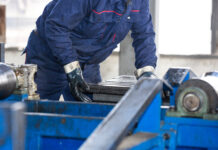NASHVILLE – The Tennessee Emergency Management Agency (TEMA) is recognizing February 2022 as Earthquake Awareness Month and reminding Tennesseans to prioritize earthquake preparedness before a disaster.
“Many Tennesseans are surprised to know that earthquakes are a hazard in Tennessee,” said TEMA Director Patrick Sheehan. “Earthquake Awareness Month is an opportunity for individuals, businesses and organizations to plan for the unexpected. I urge all Tennesseans to take meaningful action and prioritize earthquake preparedness.”
Earthquakes frequently occur in Tennessee because the Volunteer State has two seismic zones – the New Madrid Seismic Zone (NMSZ) in the west and the East Tennessee Seismic Zone in the east. While earthquakes most often occur with little to no warning, there are steps you can take to protect yourself and your family. By acting today, you can reduce your vulnerability to earthquakes that may happen in the future.
Remember these important tips:
- You may only have seconds to protect yourself in an earthquake before strong shaking knocks you down–or drops something on you. Practicing helps you be ready to respond.
- Practice Drop, Cover, and Hold On with family, friends, and coworkers.
- DROP to the ground (before the earthquake drops you!),
- Take COVER by getting under a sturdy desk or table, and
- HOLD ON to it until the shaking stops.
- If you are outdoors when the shaking starts, you should find a clear spot away from buildings, trees, streetlights, and power lines, then Drop, Cover and Hold On. Stay there until the shaking stops.
- If you are driving, pull over to a clear location, stop and stay there with your seatbelt fastened until the shaking stops. Once the shaking stops, proceed with caution and avoid bridges or ramps that might have been damaged.
- Ground shaking during an earthquake is seldom the cause of injury. Most earthquake-related injuries and deaths are caused by collapsing walls and roofs, flying glass and falling objects.
- Look around you now, before an earthquake. Identify safe places such as under a sturdy piece of furniture or against an interior wall in your home, office or school so that when the shaking starts you can respond quickly.
- Protect Your Home
- Secure heavy items in your home like bookcases, refrigerators, televisions, and objects that hang on walls.
- Store heavy and breakable objects on low shelves.
- Consider making improvements to your building to fix structural issues that could cause your building to collapse during an earthquake.
- Consider obtaining an earthquake insurance policy. A standard homeowner’s insurance policy does not cover earthquake damage.









